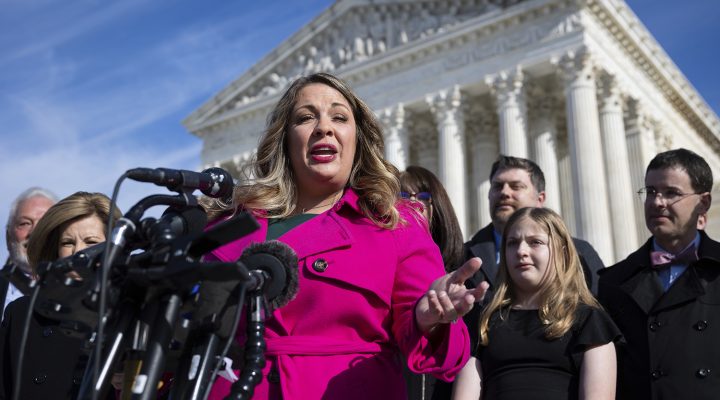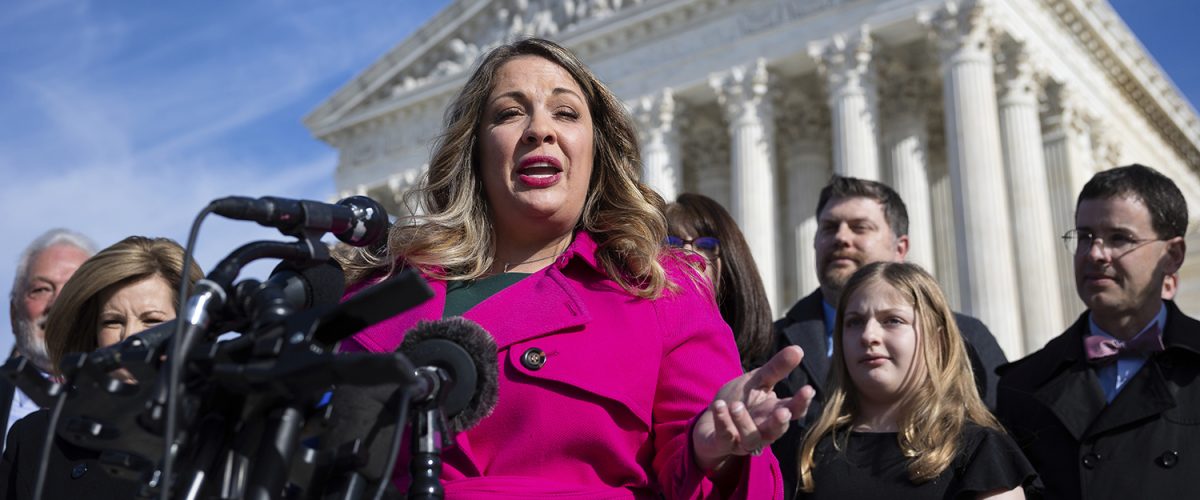The powerful Christian legal group Alliance Defending Freedom has defended more than half a dozen businesses in lawsuits protecting them from having to serve partners in same-sex weddings. But a recent exploration of ADF’s work suggests some of its cases were manufactured to advance its battle against gay rights before a supportive Supreme Court.
One judge who dismissed an ADF lawsuit in Minnesota claimed that case had been “smoke and mirrors” and “conjured up” to establish a legal precedent. The plaintiffs eventually dropped the suit and explored new business ventures that were not wedding-related.
In “Inside the Tactics that Won Christian Vendors the Right to Reject Gay Weddings,” a nearly 4,000-word article, the Washington Post tracked down some of ADF’s former plaintiffs. Some are no longer involved in weddings. Some apparently never did any real wedding work.
ADF helped some of its plaintiffs create their businesses, assisting them with corporate filings and contract language that would be used in their lawsuits, some of which were filed just months after the companies were founded.
ADF then used its victories in these cases to build the case it would win before the U.S. Supreme Court in June: 303 Creative v. Elenis. As BNG reported, the plaintiff in that case claimed gay partners had asked her to do design work for a wedding, but that claim seems to be false and was later dropped by ADF.
Founded in 1993 by Religious Right leaders including Focus on the Family’s James Dobson, Campus Crusade’s Bill Bright, and Presbyterian pastor D. James Kennedy, ADF seeks to counter the influence of liberal legal groups like the ACLU, which was founded in 1920 and has an annual budget exceeding $400 million.
ADF is a $102 million powerhouse that boasts 15 victories before the Supreme Court, including the case of wedding cake artist Jack Phillips. But its work defending wedding businesses ran aground in some cases that appeared to be manufactured.
For example:
Arizona. ADF defended two artists who operated the business Brush & Nib, but the company ceased wedding work after the suit and one of the artists then launched a conservative polling and PR firm that worked with ADF.
Kentucky. ADF approached photographer Chelsey Nelson, helped her incorporate her business, and defended her in a suit filed one month later. Nelson apparently shot no wedding photos for years before shooting a wedding for her sister-in-law this year. ADF claims she still wants to do wedding photography in Kentucky even though she now lives in Florida.
Minnesota. ADF defended two videographers who eventually dropped their lawsuit and left the video business.
Wisconsin. ADF defended Amy Lawson, a photographer who had incorporated her business two months earlier. She no longer does photography.
Ohio. ADF defended Kristi Stokes two months after she set up a business to sell services officiating at weddings. After winning a settlement, she left the industry.
Virginia. ADF defended Chris Herring 25 days after he incorporated his photo business. He now works for a tech company in Pennsylvania. The day Herring dropped his case, ADF filed a similar suit in Virginia using another artist.
ADF defended its work in helping people set up businesses used in its lawsuits, which is unusual but not illegal.
Related articles:
How Santa figures into the not-so-merry Supreme Court case about LGBTQ discrimination | Analysis by Mark Wingfield
Supreme Court says evangelical web designer doesn’t have to serve same-sex couples
Two little-known groups are training conservative legislators and school board members


